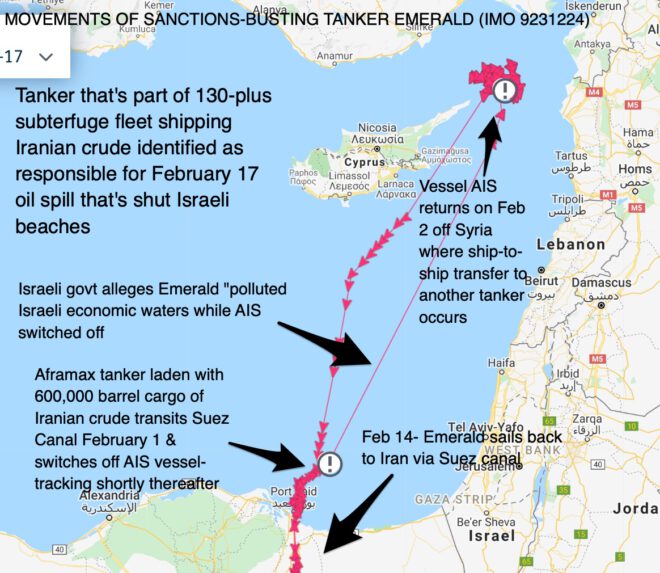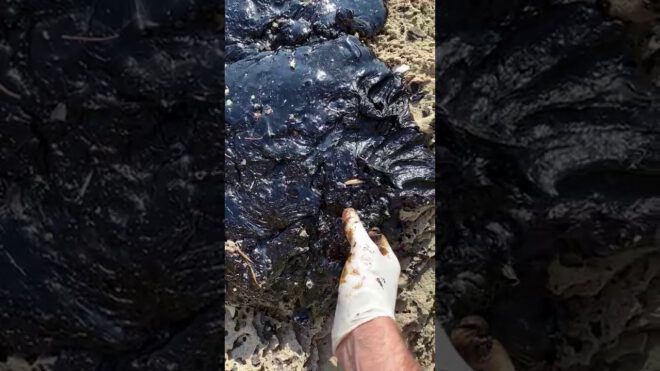Oceanographic agencies in the United States and Europe estimate that the spill occurred in early February taking two weeks to wash ashore.
“They’re not just hurting Israel,” Gamliel said. “Nature and animals don’t just belong to one nation. This is a battle that crosses borders.”
Weil who founded EcoOcean 15 years ago to help clean up the Mediterranean Sea is flabbergasted by the turn of events. He heard that perhaps it was 100 tonnes of bitumen that was dumped, but when The Washington Post suggested up to 1,000 tonnes this implies something much more sinister than a bilge oil dump.

Andreas Weil, founder of EcoOcean
Weill ponders, “Then that’s about as much oil as the whole boat can carry. Why would they dump it on purpose as it’s valued at millions of dollars?
“It’s impossible to know because most of it became heavy lumps that sank directly. No one will know how much the boat had before it left port. It will be floating up on the sea for many yeas to come,” Weil laments. “If it’s 1,000 tonnes then it’s not only cleaning out its tanks.
Iran’s Environment Ministry news page in English hasn’t been updated since 2016. Its Twitter since 2018. We reached out for a comment and so far, it’s bleak. Probably like most of the environmental problems in Iran. The destruction of Lake Urmia. Unbearable air pollution in Tehran. Water pollution. And a government that makes environmentalists and activists disappear. It’s no wonder why so many good Iranians have immigrated out to Canada.
We’ve had dissenting voices from Iran reach out to us in the past. On the strict condition that no one’s identity will be given. Ever. This Iranian blogger I interviewed (Hossein Derakhshan) in 2006 disappeared not long after the interview. He came back, subdued, many years later retracting everything that he said. It’s amazing what torture and prison can do to you.
Iran is further distancing itself every day from its neighbors in the region. This oil spill, if indeed it’s sent from them, will be the last straw.
Meanwhile in Lebanon there has been no response to the oil spill. Whether it’s the general neglect to the country’s state of affairs – remember the massive explosion in Beirut this past summer that killed hundreds – or an alliance with Iran and Syria, is anyone’s guess.
Greenpeace sent me this statement: “Almost two weeks have passed since the oil spill occurred on the Lebanese coast, and to this day we have not heard any statement from the Ministry of Environment. The ministry is supposed to be the most responsive to such a catastrophic accident.
“Therefore, Greenpeace Middle East and North Africa asks where is the Ministry of Environment? What is your national disaster management plan? What is the scale of the disaster and its repercussions on marine life? Where are the directions on how to remove oil tar and how to treat and dispose of it? Where are the safety tips that you should publish in order to ensure the safety of citizens?
“Noting that a number of associations, organizations and volunteers try their best to organize and help, but the responsibility rests with the concerned authorities first and foremost.”
Want to take action in cleaning up the sea? The UN has a new investment guide for bankers. We learned that banks are supporting the burning of the Amazon, whether or not investors at the bank are aware. Be one step ahead and invest in the sea, with this handy toolkit and guide you can download here.



